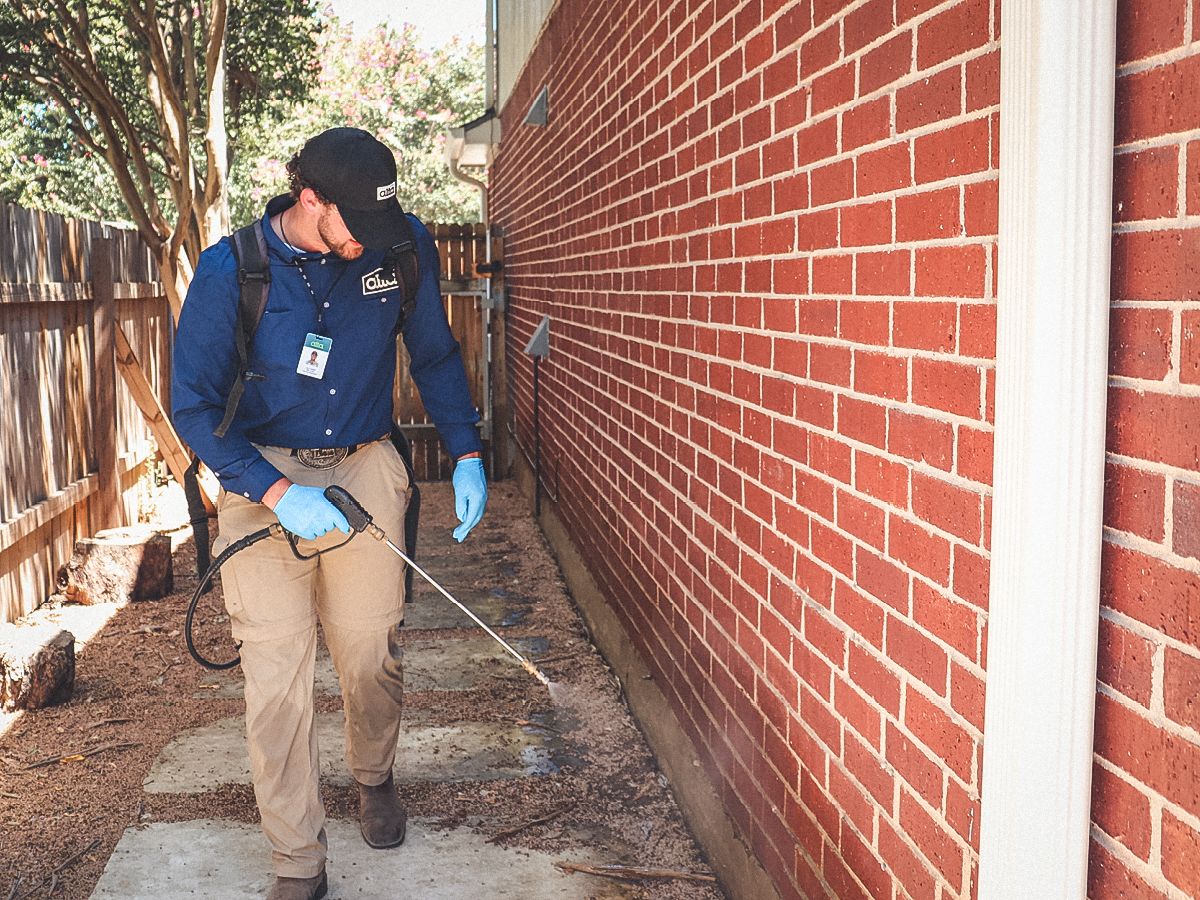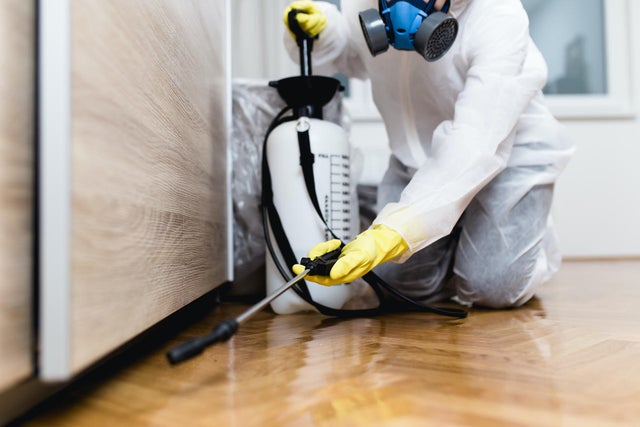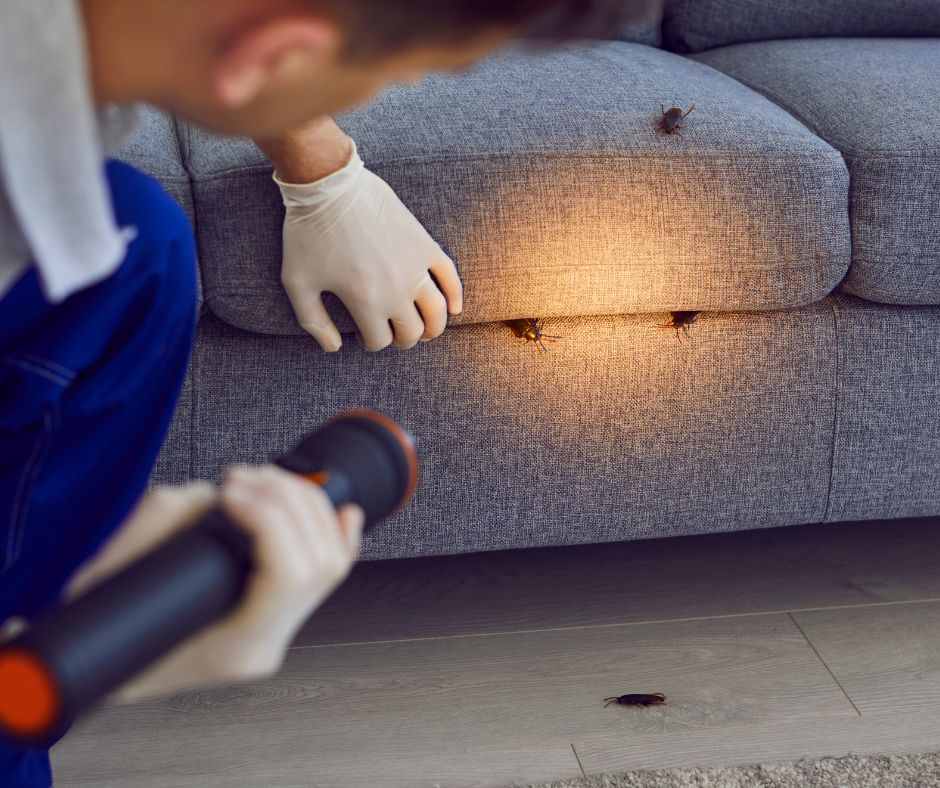Powerful Termite Treatment Port Charlotte to Safeguard Your Home
Reveal the Significance of Insect Control in Preserving a Healthy And Balanced Atmosphere and Treatment Techniques

The Function of Pests in Communities
Pests, typically checked out solely as annoyances, play a complex role in communities that is important for maintaining eco-friendly balance. They contribute considerably to different eco-friendly processes, consisting of pollination, nutrient cycling, and insect control. For circumstances, many insect species, such as butterflies and , are vital pollinators for a broad variety of plants, which consequently sustains biodiversity and food manufacturing.
Furthermore, insects work as target for numerous predators, creating an essential web link in food webs. This interdependence guarantees the survival of various varieties and aids control populaces within environments (Termite treatment Port Charlotte). Decomposer insects, such as specific beetles and fungi, are crucial in damaging down natural issue, hence enriching soil and promoting nutrition recycling.
Alternatively, while bugs can be beneficial, their overpopulation or intrusion right into non-native atmospheres may disrupt these environmental features. This intricacy emphasizes the importance of comprehending bug dynamics, as effective insect management methods must take into consideration both their eco-friendly functions and possible effect on human activities. Stabilizing pest visibility while decreasing injury is vital for maintaining the integrity of ecological communities and ensuring agricultural performance.
Wellness Threats Associated With Insects
The existence of parasites in numerous atmospheres extends beyond their eco-friendly duties, as they likewise posture substantial health risks to pets and human beings. Numerous parasites, consisting of bugs, rodents, and parasites, are carriers of illness that can have serious wellness implications. For instance, rodents are understood to send hantavirus and leptospirosis, both of which can bring about serious respiratory system and kidney problems, respectively.
Pests such as mosquitoes and ticks are well known for spreading out vector-borne diseases like jungle fever, dengue fever, and Lyme illness. These illnesses can lead to high morbidity and death prices, particularly in at risk populaces. Furthermore, parasites like bedbugs and cockroaches can aggravate allergic reactions and bronchial asthma, adding to breathing troubles in individuals, particularly those with pre-existing problems.
Moreover, the existence of bugs can lead to emotional anxiety and pain, impacting general health. Contamination of food and surfaces by parasite droppings and stays can bring about foodborne ailments, highlighting the importance of preserving sanitary conditions. Recognizing the health and wellness dangers linked with pests is important in acknowledging the requirement of efficient insect monitoring methods to protect animal and human health and wellness.

Benefits of Efficient Pest Control
Efficient parasite control is crucial for preserving a safe and healthy and balanced environment, as it consistently mitigates the countless threats associated with bug invasions. One of the key advantages of efficient bug administration is the reduction of health and wellness risks.
Furthermore, effective bug control safeguards residential property and frameworks from damage. Several bugs, like termites and carpenter ants, can create comprehensive architectural damages that might call for pricey fixings. By proactively handling these problems, services and homeowners can protect their investments.
An additional considerable benefit is the enhancement of overall high quality of life. A pest-free atmosphere adds to mental health and minimizes anxiety associated with infestations. Efficient parasite control fosters a much safer setting for kids and pet dogs, guaranteeing that homes continue to be top article shelters complimentary from disease-causing organisms and dangerous chemicals.
Usual Parasite Control Strategies

In the world of bug administration, various strategies are employed to combat invasions efficiently. These techniques can be generally categorized right into 3 primary methods: social, mechanical, and chemical controls.
Cultural control entails changing techniques to decrease parasite facility, survival, and reproduction. This may consist of plant turning, appropriate sanitation, and habitat manipulation, which jointly create a setting much less helpful to pest spreading.
Mechanical control employs physical approaches to eliminate bugs (Termite treatment Port Charlotte). Strategies such as catches, obstacles, and vacuum cleaners are typically utilized to directly get rid of pests from a location. This method is especially efficient for managing rodents and bugs without making use of harmful chemicals
Chemical control involves the application of chemicals to take care of parasites. These substances can be categorized into insecticides, herbicides, and fungicides, each targeting particular types of parasites. It is important to use these chemicals carefully, adhering to safety and security guidelines and guidelines to reduce possible damage to non-target species and the setting.
Each insect control strategy has its advantages and constraints, and often, an integrated strategy incorporating numerous techniques produces the finest cause keeping a check it out pest-free atmosphere.
Lasting Bug Administration Practices
Sustainable insect monitoring methods incorporate a series of techniques designed to minimize environmental influence while effectively managing pest populaces. These methods focus on using eco-friendly approaches over chemical pesticides, therefore reducing the risk of damage to non-target species, including beneficial bugs, wild animals, and people.
Integrated Parasite Administration (IPM) is a foundation of lasting techniques, integrating organic, social, mechanical, and chemical strategies to take care of insects. For example, organic control entails introducing all-natural predators or parasites to suppress parasite populations. Cultural techniques, such as plant turning and polyculture, interrupt pest life cycles and improve ecosystem strength.
Mechanical techniques, such as barriers or catches, can successfully prevent insect gain access to without chemical treatment. Additionally, maintaining healthy ecological communities with appropriate dirt monitoring, plant health, and biodiversity can naturally reduce bug concerns.
Education and learning and recognition are vital components, equipping people and areas to recognize insect hazards early and apply safety nets. Termite treatment Port Charlotte. By promoting an alternative method that balances insect control with ecological integrity, sustainable pest management practices not only protect plants and frameworks yet additionally add to a much healthier setting for future generations
Verdict

Comprehending the health risks linked with insects is critical in acknowledging the need of reliable bug administration approaches to safeguard human and animal health and wellness.
Effective pest control is vital for keeping a safe and healthy and balanced atmosphere, as it consistently alleviates the various threats connected with pest invasions.Integrated Parasite Administration (IPM) is a keystone of sustainable techniques, combining organic, cultural, mechanical, check this and chemical techniques to manage insects. By recognizing the role of bugs, recognizing connected health dangers, and using diverse therapy techniques, a lasting strategy to pest administration can be attained. Integrated Insect Administration (IPM) stresses an alternative technique that mitigates damage to beneficial organisms while properly controlling insect populaces.